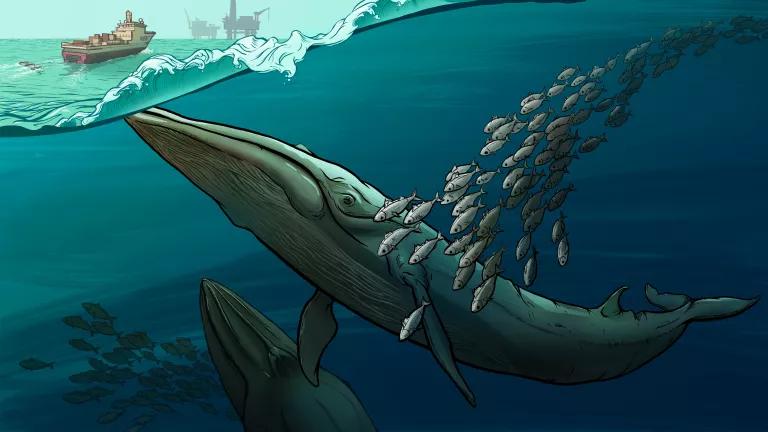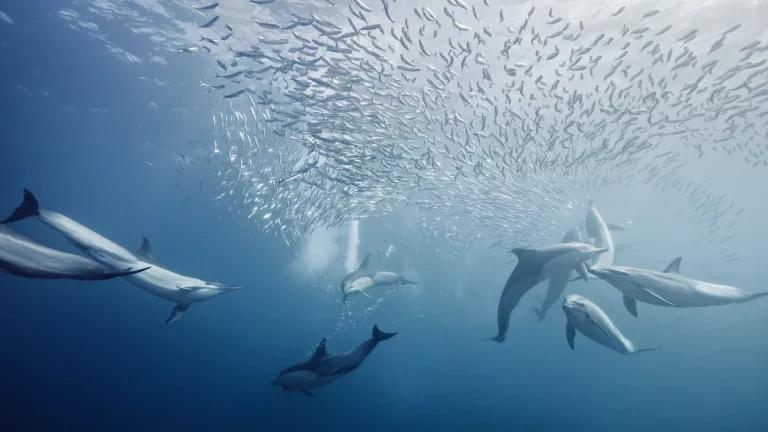Preserve Regional Ocean Ecosystems
NRDC is helping create a more comprehensive approach to planning and development to protect ocean ecosystems keep our oceans healthy for generations to come.

Chad Sawyer
America’s oceans and coasts are beautiful places to visit, swim, and fish, but they are becoming overwhelmed by development. Already stressed from problems like pollution, rising water temperatures, and ocean acidification, our whales, sea turtles, fish, and shellfish are now confronted with even more threats. Increased numbers of ships and cables are crisscrossing the ocean's surface and the water far below. Offshore energy development is continuing to advance. Sand is becoming the new gold, and more mining is being required to reinforce our shorelines against sea level rise and bigger, stronger storms.
Because dozens of agencies have overlapping and sometimes conflicting responsibilities when it comes to ocean development, coordinated ocean planning is essential to keeping our oceans healthy for generations to come. That's why NRDC is helping create a more comprehensive planning approach. Our scientists and advocates pushed for the establishment of the National Ocean Policy in 2010, the first-ever holistic policy designed to protect ocean ecosystems and the $350 billion ocean economy. The policy encourages representatives from states, federal agencies, and tribes to consider their collective interests and to develop regional plans similar to land use plans on shore that will conserve our oceans' riches and encourage sustainable use.
NRDC is deeply engaged in shaping these plans and ensuring they conserve important marine habitats. As scientists identify waters of the mid-Atlantic that are rich in biodiversity or that shelter struggling species, NRDC urges regional leaders to make plans that preserve those areas. And we are pushing federal and state agencies to make more specific commitments to protect the areas identified through the regional planning process.
Regional planning has also led to the development of regional data portals that compile information about fishing grounds, shipping lanes, energy sites, and other ocean uses. These online tools make it easy to visualize the many ways ocean waters are being used, and we encourage regional planners to make proactive plans to use oceans sustainably and protect marine life. For instance, we are urging offshore wind farms to take steps that will protect the feeding areas and migration routes of endangered North Atlantic right whales.
Related Content

A Better Future Through Protecting America’s Ocean Habitats

The First Regional Ocean Plans: A One-Year Review

Protect Our Ocean, and in Turn, It Protects Us






